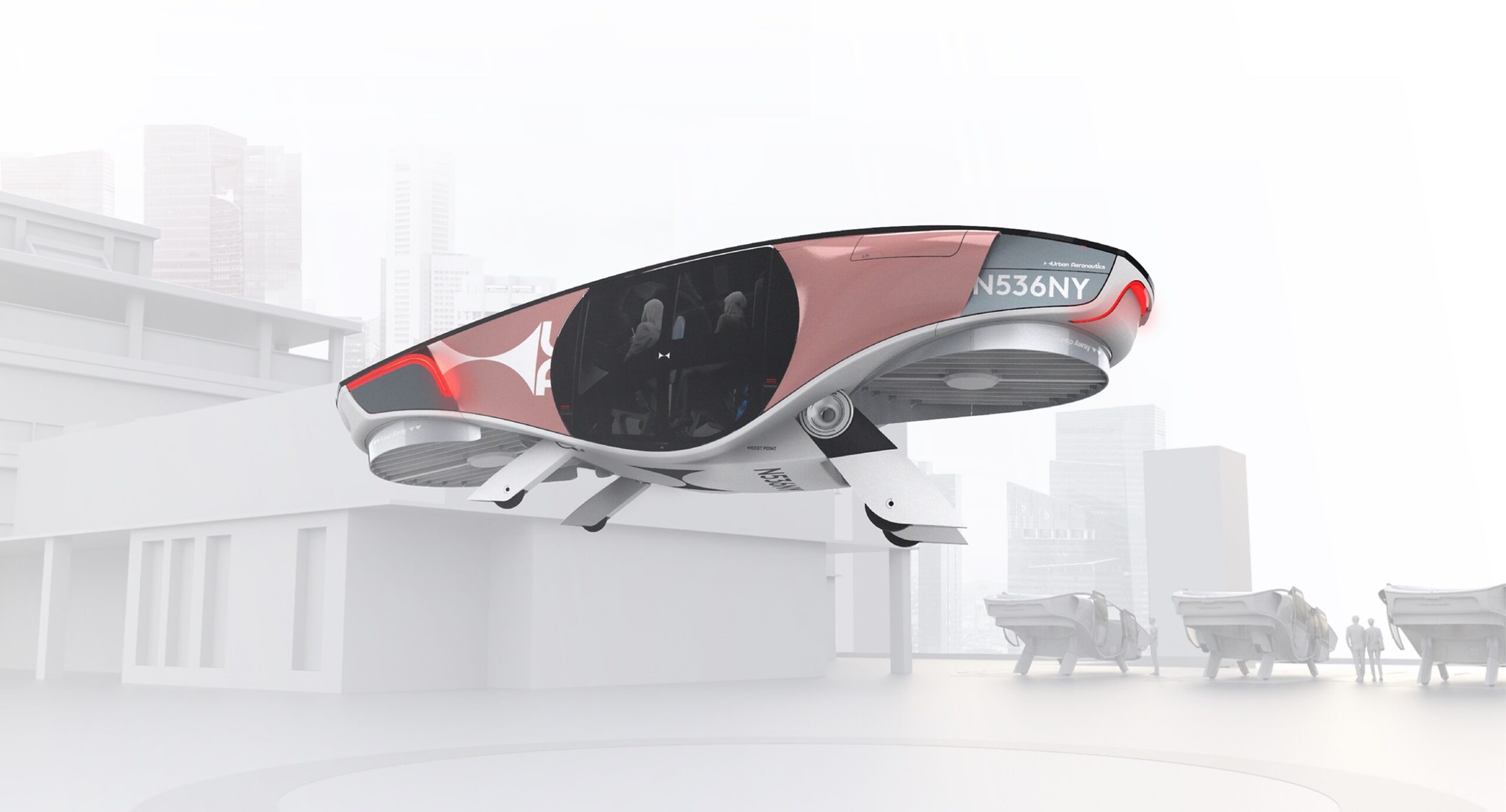Urban Aeronautics Alleges DJI’s High-End Drones Violate Emergency Landing Technology Patent
by DRONELIFE Features Editor Jim Magill
Urban Aeronautics, an electric vertical-takeoff-and-landing vehicle manufacturer, is suing DJI, claiming the China-based drone giant improperly copied the Israel-based EVTOL company’s technology for safely bringing down a multi-rotor aircraft after one of the rotors fails.
A patent lawsuit, Urban Aeronautics Limited vs. Shenzhen DJI Sciences and Technologies LTD, was filed earlier this month in the U.S. District Court for the Eastern District of Texas. The suit alleges that high-end DJI drones sold in the U.S. — including the DJI Matrice, Matrice 300, Matrice 350 and FlyCart 3 – infringe on Urban Aeronautics’ patent for Three-Propeller Emergency Landing (TPEL) capabilities.
“Urban Aeronautics believes in a strong international patent system that fosters innovation and investment. International intellectual property laws encourage the development and licensing of valuable contributions across technical disciplines, benefiting individuals, industries and society as a whole,” Urban Aeronautics CEO Eran Ron said in an email statement. “We trust the U.S. Judicial system to bring this important basic line to our case.”
The suit alleges that the DJI products directly infringe on Urban Aeronautics’ patent for “control subsystems with redundancies organized so as to provide continued but degraded control power over critical aircraft flight, even if any one complete control subsystem catastrophically fails.”
In addition, the suit states that DJI allows its customers to also infringe on the rights for the patented technology because it “supplies material parts of infringing systems, where the material parts are not a staple article of commerce, and are incapable of substantial non-infringing use.”
The lawsuit also alleges that, as a result of DJI’s actions, Urban Aeronautics “has suffered and will continue to suffer damages in an amount not yet determined, of at least a reasonable royalty.”
Joseph Zito, an attorney representing Urban Aeronautics said that as of Monday, October 18, DJI had not responded to the lawsuit. He said that patent infringement suits of this type are usually resolved without going to trial, with the defendant company agreeing to pay the company bringing the suit a licensing fee.
He said if the suit is resolved in this way, it could take anywhere from four to eight months. If on the other hand the suit does go to trial, that process could take much longer, up to two or three years.
In any case, Zito said he would not expect Urban Aeronautics to seek to shut down DJI sales in the U.S. over the use of the TPEL technology. “It’s a good feature and their customers should be allowed to benefit from it,” he said.
For almost two decades, Urban Aeronautics has pursued the goal of employing the most advanced technology to develop a fleet of products to help usher in a new era of urban air mobility. Its flagship product is the CityHawk, an advanced, compact EVTOL vehicle with a distinctly designed, wingless exterior and patented fully-enclosed rotor system. Urban Aeronautics’ founder and current board member Rafael Yoeli designed the CityHawk as “a city-scale aircraft that was safe, eco-friendly, and accessible for all,” according to the company’s website.
Yoeli built the first CityHawk prototype in his Tel Aviv apartment and the aircraft had to be taken out of the window, because it couldn’t fit through the front door. He said he designed the CityHawk as the first manned vehicle to employ ducted-fan technology, in order to avoid the dangers of inherent in operating an aircraft with exposed rotors in an urban setting.
Urban Aeronautics has been developing its prototype aerial vehicles since 2006 and to date has conducted more than 300 successful test flights. “The company has committed to 100% hydrogen power for its entire product line, which will be the most environmentally friendly and efficient air fleet on the planet,” the website states.
In response to an email request from DroneLife, a DJI spokesperson declined to comment, adding, “We respect intellectual property rights and are dedicated to innovation.”
Want DRONELIFE news delivered to your inbox every weekday? Sign up here.
Read more:
Jim Magill is a Houston-based writer with almost a quarter-century of experience covering technical and economic developments in the oil and gas industry. After retiring in December 2019 as a senior editor with S&P Global Platts, Jim began writing about emerging technologies, such as artificial intelligence, robots and drones, and the ways in which they’re contributing to our society. In addition to DroneLife, Jim is a contributor to Forbes.com and his work has appeared in the Houston Chronicle, U.S. News & World Report, and Unmanned Systems, a publication of the Association for Unmanned Vehicle Systems International.
Miriam McNabb is the Editor-in-Chief of DRONELIFE and CEO of JobForDrones, a professional drone services marketplace, and a fascinated observer of the emerging drone industry and the regulatory environment for drones. Miriam has penned over 3,000 articles focused on the commercial drone space and is an international speaker and recognized figure in the industry. Miriam has a degree from the University of Chicago and over 20 years of experience in high tech sales and marketing for new technologies.For drone industry consulting or writing, Email Miriam.
TWITTER:@spaldingbarker
Subscribe to DroneLife here.

